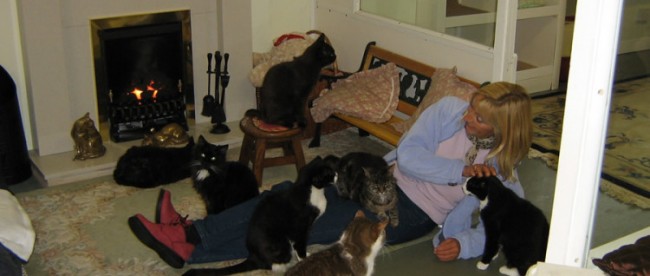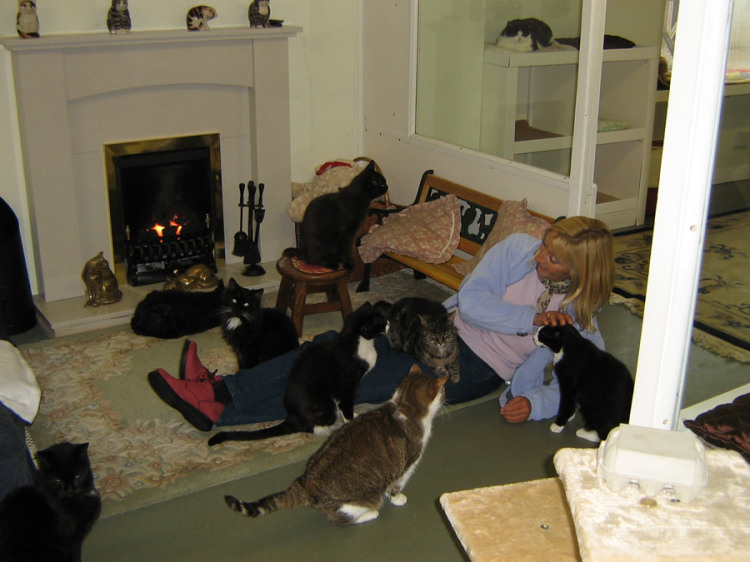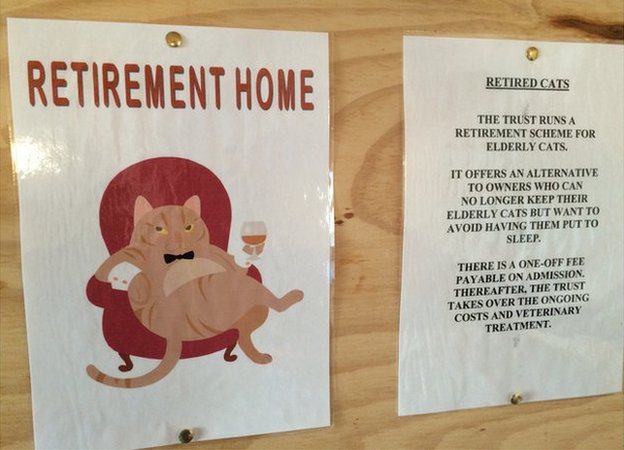Where Old English Cats Go to Retire

In 1999, a Lincolnshire, England woman named Jain Hills founded something called the Lincolnshire Trust for Cats. The original goal of the Trust was to find new homes for displaced cats of all ages, and that’s a function the organization still serves today. But they’ve expanded to address a more narrow need. Their website explains the problem:
We are often asked to take in cats where the owner has died or gone into residential care. Frequently, no one in the immediate family will take them in and often there is the urgent necessity to remove them from a now empty property. Unfortunately, charities cannot always solve the situation. Quite often, when an elderly person dies, the animals that are left behind are elderly themselves. Would you want your lifelong friend to be put in a pen for the rest of its life, with no hope of a home because of its age?
Their solution: a retirement home for cats.


(Images via Laughing Squid)
For a one-time fee of £850 (about $1,300), the Trust — a non-profit — will accept your former pet into its confines and care for it from there on after. (You don’t need to die first, either; if you have to give up your pet for any reason, the Trust will accept him or her.) Any expenses incurred on the cat’s behalf in excess of that £850 fee is taken care of by the Trust. And, because of generous donors, the Trust doesn’t need to pinch pennies (although it could use more donors, if you’re interested). According to Mashable, the retirement community “features three central south-facing rooms where cats can sunbathe all day, and also has private rooms for less social cats, enclosed outdoor cat runs and round-the-clock care from a live-in caretaker.” Not bad for an old cat.
The Trust is, as of about a year ago, home to roughly 80 cats, according to the BBC — also provides temporary sheltering for about 300 or so younger cats who will ultimately be placed it new homes. But don’t think Ms. Hills is a crazy cat lady — hardly. She told the BBC that she prefers dogs (she owns five of them), which is why she’s able to run such a unique charity: “I couldn’t run a dog charity but I can run a cat charity because I can stand back from it. I don’t get emotionally involved.” Besides, she continued, one can have too much cat-time for one’s sanity: “when you work with 400 cats all day you need to go home to a dog.”

Bonus Fact: For us humans, retirement communities are an option for those who need help in many of life’s day-to-day tasks, such as preparing meals for oneself or finding 24-hour access to medical care. But the stigma around retirement communities (warranted or otherwise) often makes them an option of last resort. In 2004, a group of researchers at Northwestern University’s medical school proposed a different option: cruise ships. As the authors noted in their paper, “cruise ships are similar to assisted living centers in the amenities provided, costs per month, and many other areas” and at least one woman has already taken this route. It doesn’t work for everyone, of course — you need to be in relatively good health — but the authors of the paper also provide suggestions for cruise ships who want to cater to this potential market.
From the Archives: The Cat’s Cradle: The hotel with about a half-dozen or so permanent guests — cats.
Take the Quiz: Name the famous(-ish) cats.
